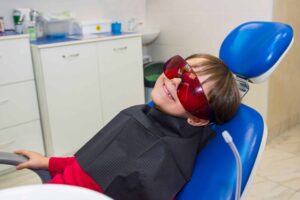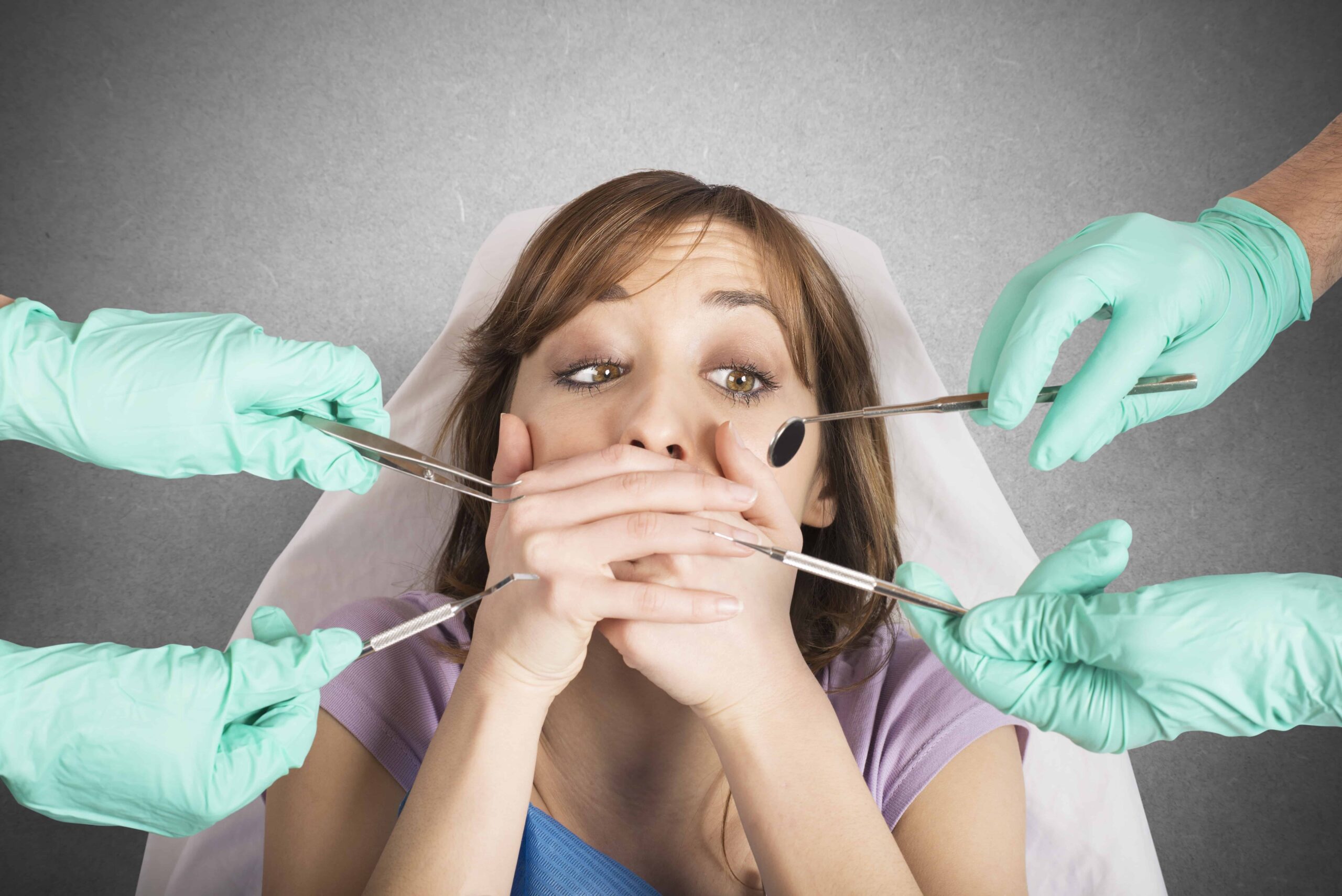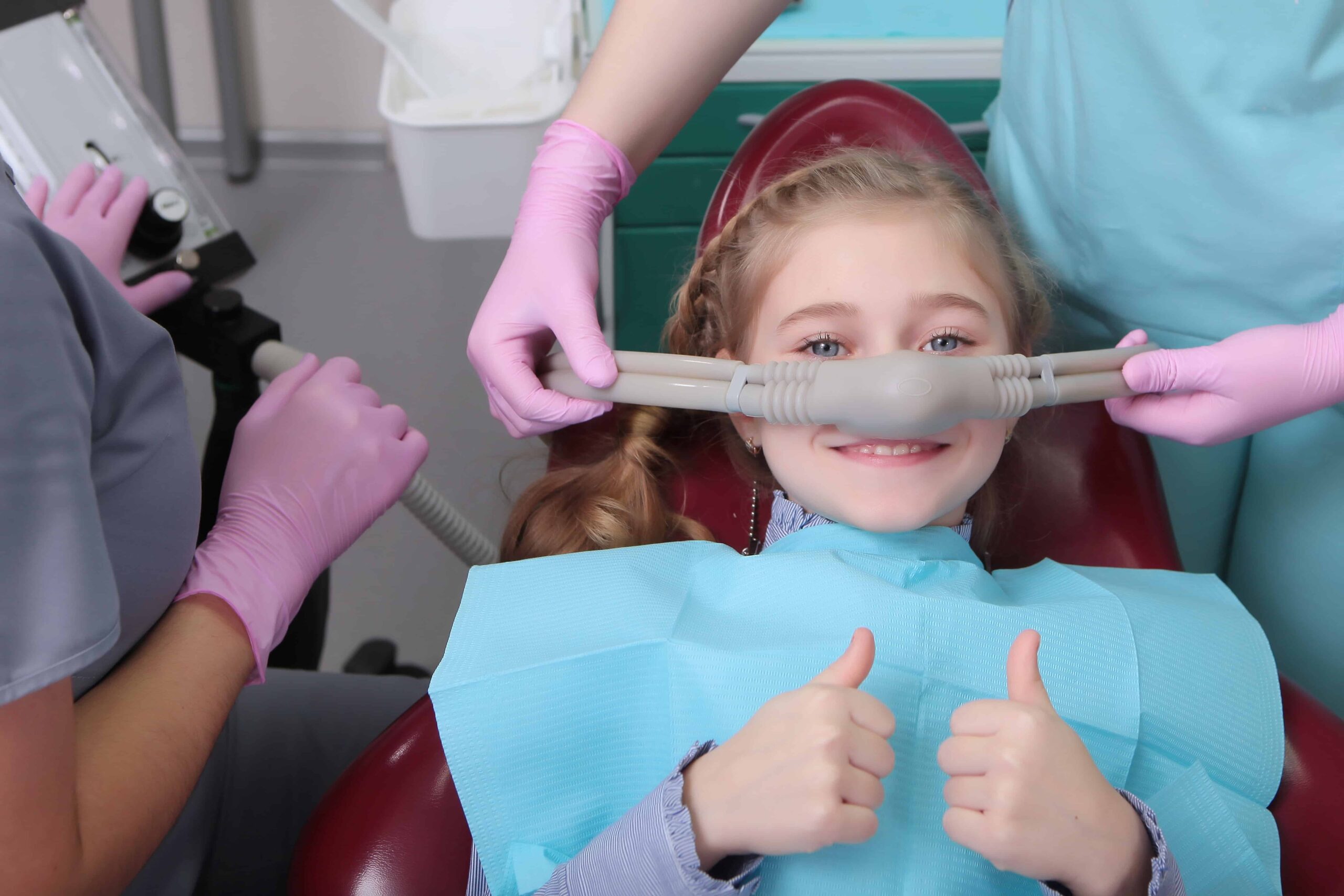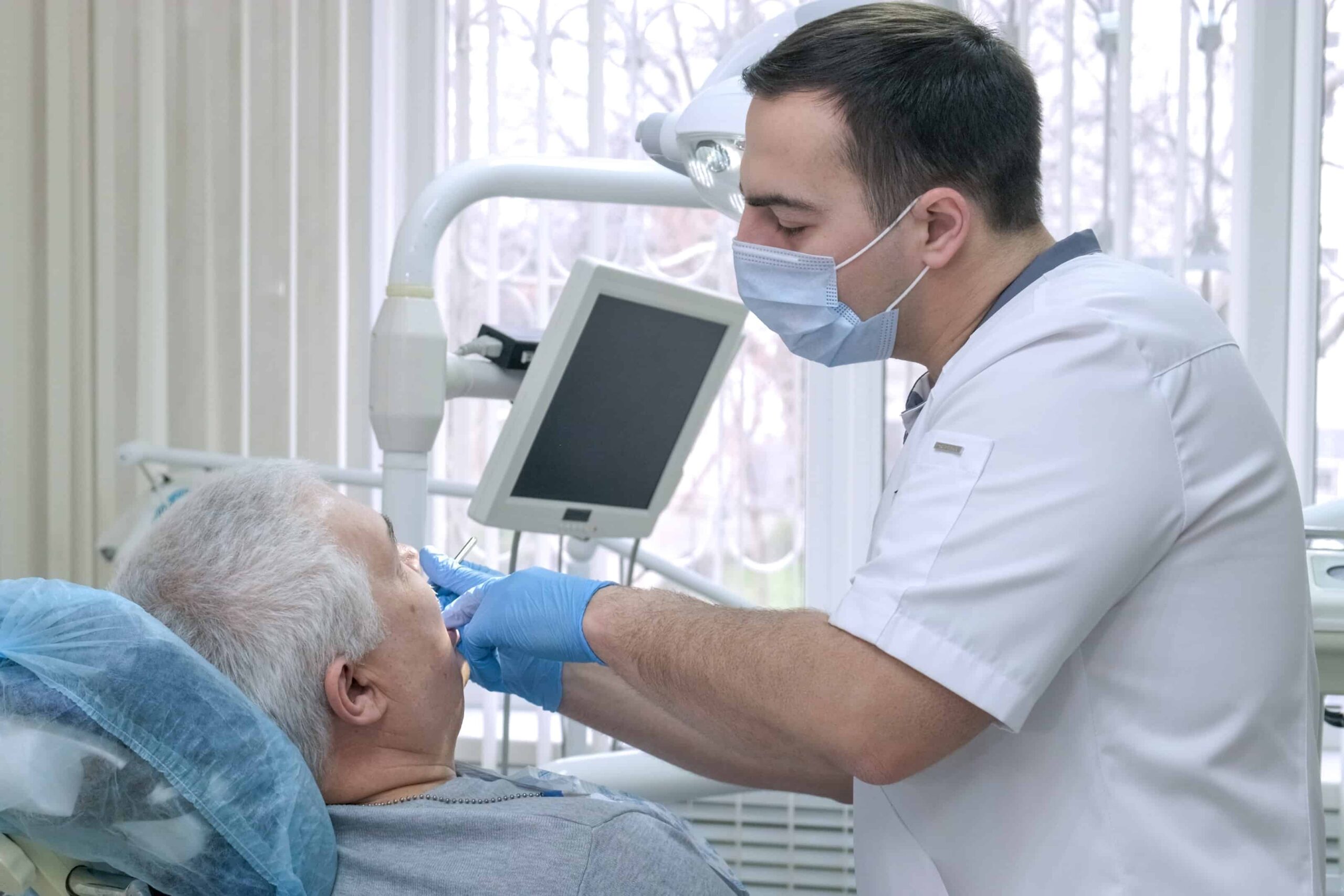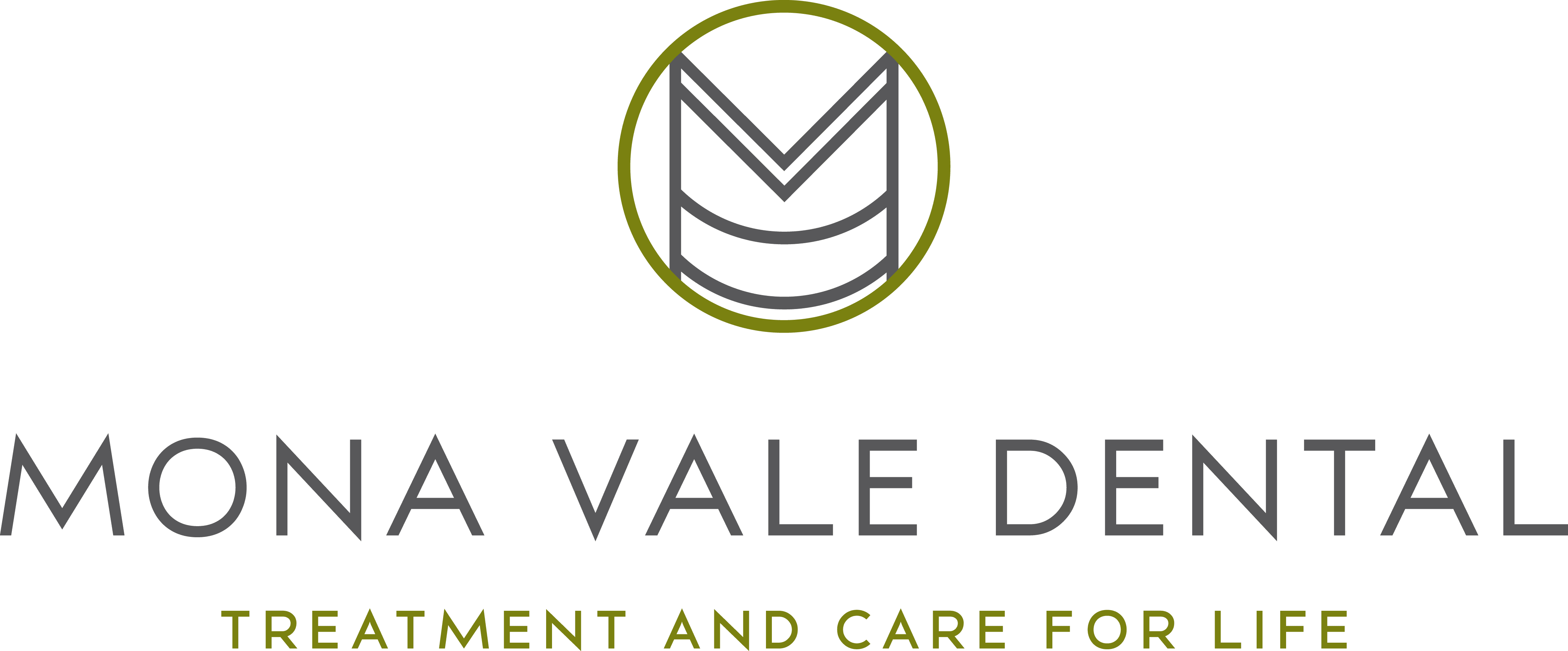Some people tolerate the pain of an oral infection for years, because they don’t want to step inside a dental clinic.
If you can relate to their dread, you’re not alone!
Dental anxiety is fairly common – impacting 16 per cent of adults and 10 per cent of children in Australia.
The degree that people experience this fear varies. At the worst end of the scale, one in three anxious patients haven’t seen a dentist for at least ten years.
Unfortunately, people with intense dental anxiety are more likely to have missing teeth, gum disease, cavities and other oral health problems that lower their quality of life and self-esteem.
The sooner these problems are addressed, the less complicated the treatment will be (with faster recovery time and lower costs).
Even though you know what’s best for you, it’s not easy to swallow that anxiety – especially if you’ve previously had a stressful experience in the dentist’s chair.
Sedation dentistry helps patients to feel better about getting the treatments they need to stay healthy.
What is sedation dentistry?
Sedative medication is administered before the procedure, so patients feel completely relaxed and comfortable during the entire treatment.
There are different forms of sedatives ranging from mild to heavy, depending on the patient’s needs. The patient is awake and responsive to questions while under the influence of most types of sedatives, however they will feel sleepy (this is why it’s also known as twilight sedation).
After the patient is sedated, a local anaesthetic is then administered to completely numb any pain that may arise during the procedure. If you have a fear of needles, don’t worry, you won’t feel the pinch or notice this is happening because you feel so calm.
Who is dental sedation suitable for?
Dental sedation is a blessing for people who are afraid of going to the dentist – whether this is a mild fear or full-blown phobia.
But you don’t need to have anxiety to benefit from twilight sedation. It’s also suitable for people with sensitive teeth and gums, who require more than local anaesthetic to completely numb the pain.
The medication also alleviates an overactive gag reflex for patients who normally experience this!
Finally, sedation comes in handy during lengthy, complicated treatments that require the mouth to stay open for a long time. Dental sedation helps people to remain comfortable at every stage of the procedure.
Please note, we only ever administer twilight sedation with the informed consent of our patients.
Sedation dentistry benefits
- Feel relaxed, safe and comfortable during the entire procedure.
- Pain-free treatment!
- Fewer appointments may be required for patients undergoing multiple sessions, as dentists get more done when people are calm and still.
- It’s likely that you won’t remember the details of the treatment after it’s occurred (depending on the type of sedation used).
- In the long-term, your oral health will be so much better. No more discomfort or hiding your smile! Gone are the days when you avoid seeing the dentist for general maintenance and early intervention needs.
The most common types of sedation dentistry
Oral Sedation: a tablet or liquid is swallowed one hour before the treatment, as it needs time to kick in. This is a good option for mild anxiety. You will be awake and responsive, but won’t feel any pain or panic. It’s likely you won’t remember much from the treatment. You may be a little drowsy for up to 24 hours after the procedure, and you’ll need someone you trust to take you home.
IV Moderate Sedation: this sedation is a little heavier. It’s suitable for people with high anxiety levels, who don’t want to remember anything about the treatment. A sedative is injected into the patient’s arm. After a few minutes, the patient feels very calm but is still responsive to directions. Please don’t handle any machinery or drive for 24 hours after the procedure, because you’ll be feeling lightheaded.
Inhaled Minimal Sedation (“happy gas”): you inhale nitrous oxide gas, which puts you into a relaxed and happy state after a few minutes. You’re awake and responsive, but pain sensitivity is low. This is suitable for patients with mild anxiety.
General anaesthesia (also known as sleep dentistry): The patient is completely unconscious, as though in a deep sleep. Our team only uses mild to moderate sedation methods, not general anaesthetic, which is only given in a hospital or day surgery clinic.
How safe is sedation dentistry?
Sedation dentistry is safe for adults and children, when administered by a dentist who’s trained in this area.
Having said this, there are some short-term risks that arise on rare occasions:
- Drowsiness lingers for more than 24 hours after the procedure
- Headaches
- Nausea
- Vomiting
- Dry mouth
- Irritability
- Allergic reaction to the sedative (there’s medication to counter this)
Your dentist will ask about your medical history, before deciding if sedation is a suitable option.
Make sure you tell your dentist if you’re pregnant, as most types of sedation aren’t recommended during pregnancy. If treatment can’t be avoided during your gestation period, don’t worry, certain types of inhalation sedatives are safe for pregnant women.
What to expect with sedation dentistry
- During the consultation: your dentist will ask about your health history and what medications you’re taking, to determine the best sedative for your needs.
- Before the treatment: we generally ask you not to consume anything for six hours before the procedure.
- Administering the sedative: this method depends on the type of sedation you’re getting. After the medication has calmed you, a local anaesthetic will be injected into the area to make sure there’s no pain.
- Recovery time: this is different for everyone, based on the medication type and your body’s response. In many cases, people who receive “happy gas” only need half an hour before they feel like themselves again. Other sedatives require 24 hours for full recovery, so you need to wait before driving, operating machinery, working or going to school. If you haven’t improved after 24 hours, or develop symptoms such as vomiting, please call your dentist.
- Get someone you trust to drive you home: this is required for all types of sedation, except for “happy gas” (nitrous oxide).
- Eating after the procedure: there are no particular dietary restrictions while the sedation wears off. The only limits around what you can eat or drink depend on what kind of procedure you’ve had (for example, root canal or filling).
Your dentist will give you detailed information about what to expect during the procedure and post-operative care, based on your individual circumstances.
Sedation dentistry cost
The costs for sedation vary, depending on the type of medication that will be used.
Generally speaking, expect to pay:
- Between $850 and $1600 for IV sedation
- Between $200 and $400 for nitrous oxide
Sedation dentistry is an option at Mona Vale Dental
We offer sedation dentistry as an option for general and cosmetic procedures.
Our friendly team has plenty of experience helping nervous patients to feel better about their treatment. We’ll support you through the entire process!
If you need help financing the procedure, we offer interest-free payment plans
Fill out this contact form or call our team on (02) 9997 1100 to find out how we can restore your smile, while keeping you relaxed and comfortable.

